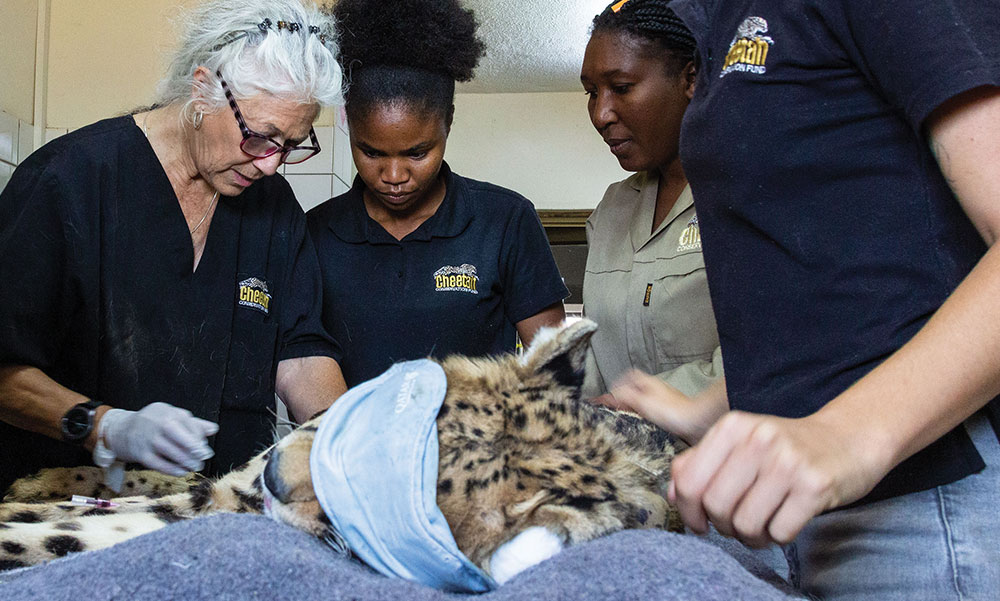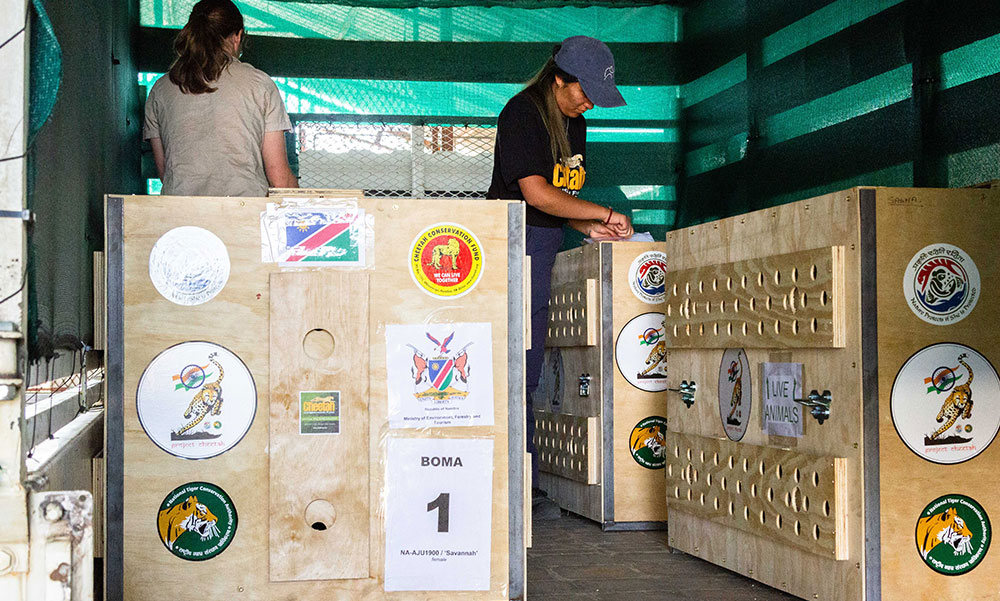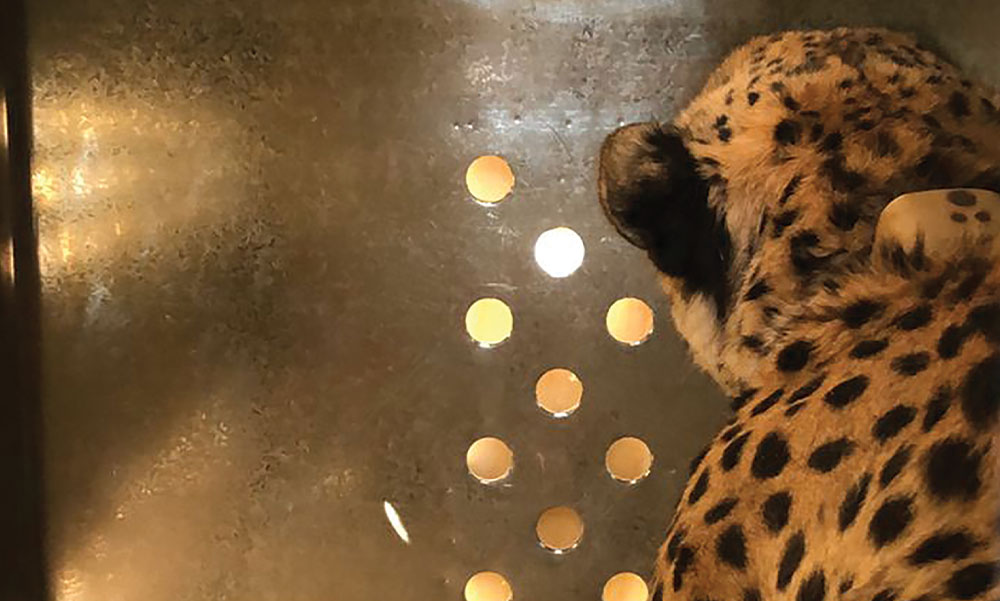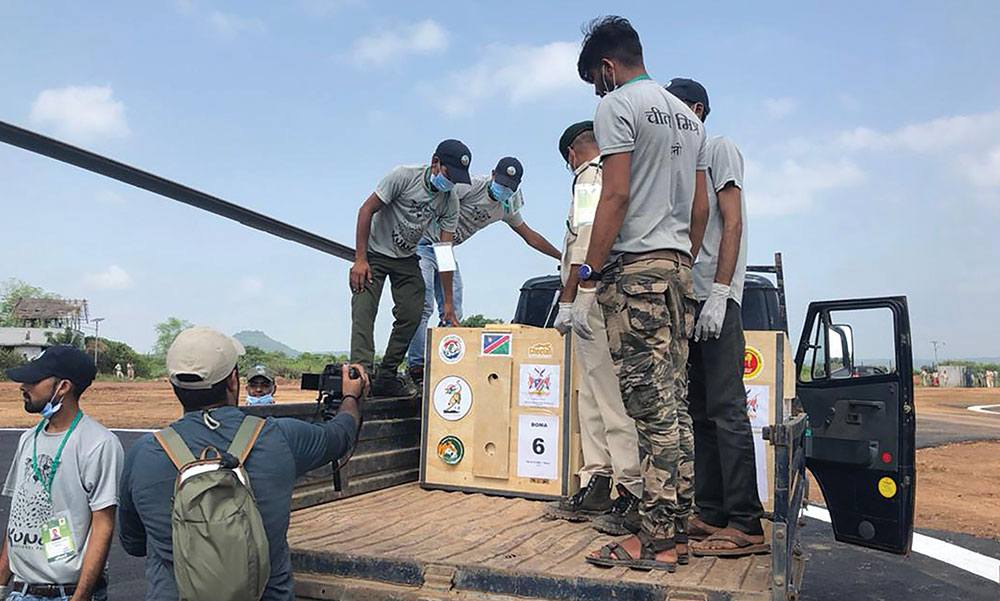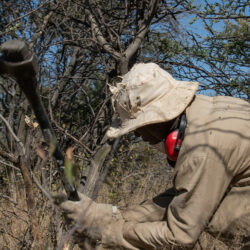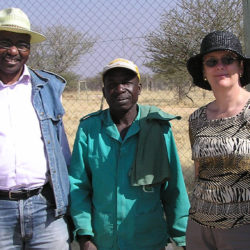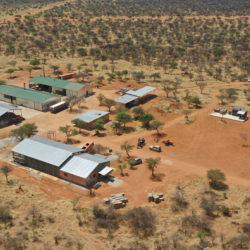Veterinary Work at CCF Needs Your Support
-
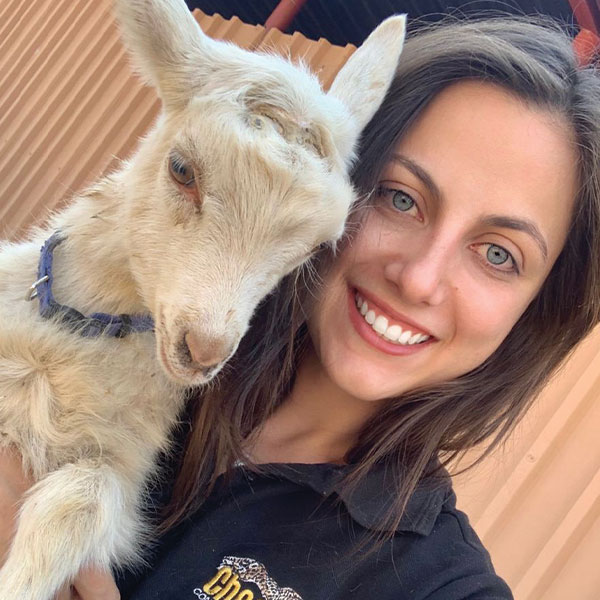
- by Ana Basto October 4, 2022
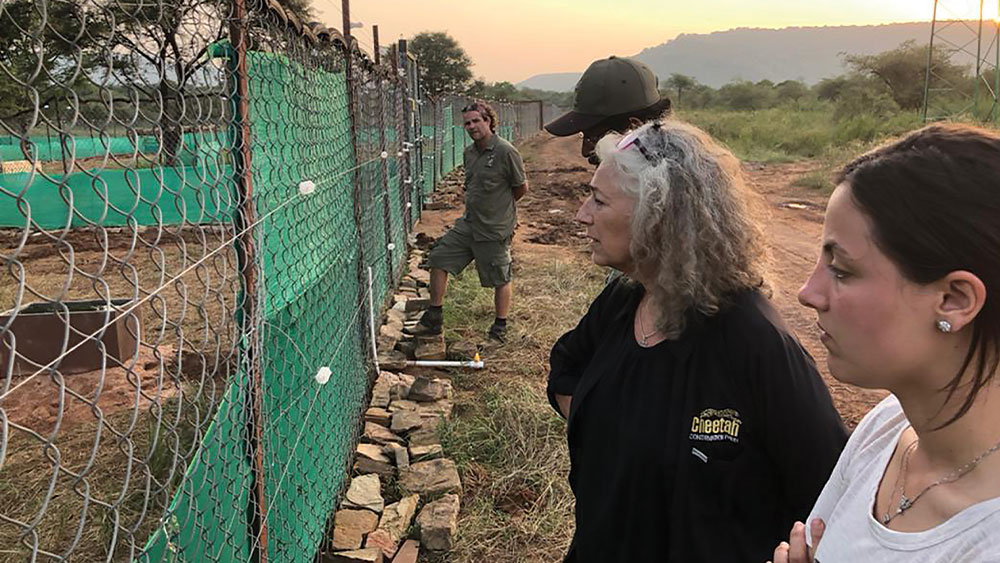
I started working with Cheetah Conservation Fund (CCF) in 2021 after completing my externship here in 2016. I have known about CCF since I was a child and I dreamed of working here one day with cheetahs. I’ve been given many opportunities to build my professional knowledge and I feel very privileged to be able to help fulfill CCF’s mission to save the cheetah in the wild.
The clinic at CCF’s International Research and Education Centre in Namibia is my normal base of operations, though I have also accompanied Dr. Laurie Marker to work in CCF’s Cheetah Safe Houses in Somaliland. In September, I was given the opportunity to help with Project Cheetah, relocating eight wild cheetahs to Kuno National Park in India. The photos from that historic project are included inside this letter.
CCF’s animal health and care needs are incredibly diverse. In Namibia, we provide veterinary care to 21 long term resident cheetahs and rehabilitate any likely candidates for release back into the wild. We also have two resident African wild dogs and two groups of domestic working dogs, for scat detection and guarding livestock. Livestock Guarding Dogs (LGDs) work on our Model Farm protecting our herds of “Dancing” dairy goats, and fat-tailed Damara sheep. There are other livestock animals like cattle and horses. Also, researchers are now working with donkeys to see if they would make good guarding animals to supplement the LGD program, so we have a small group of donkeys to care for.
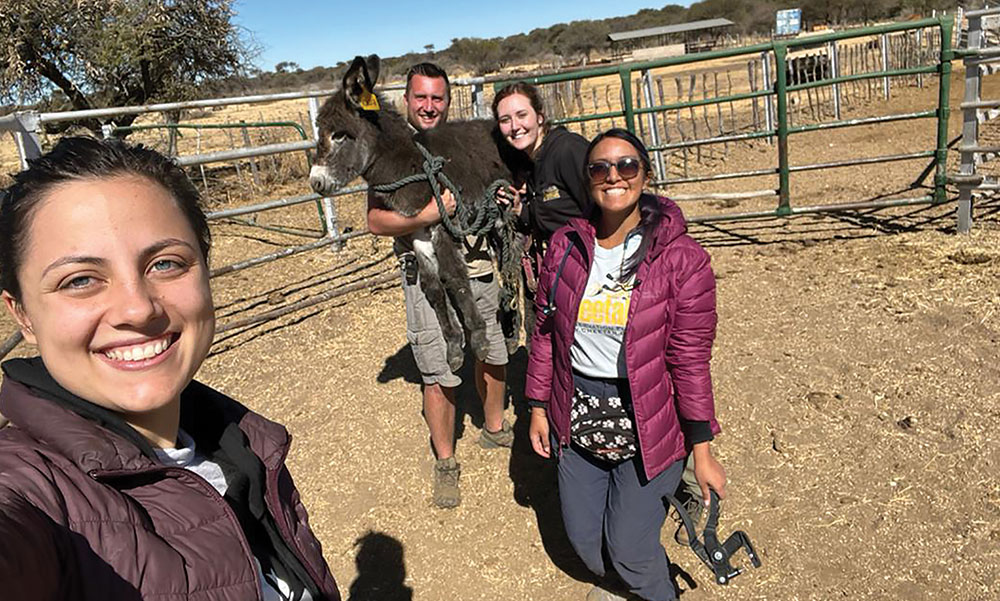
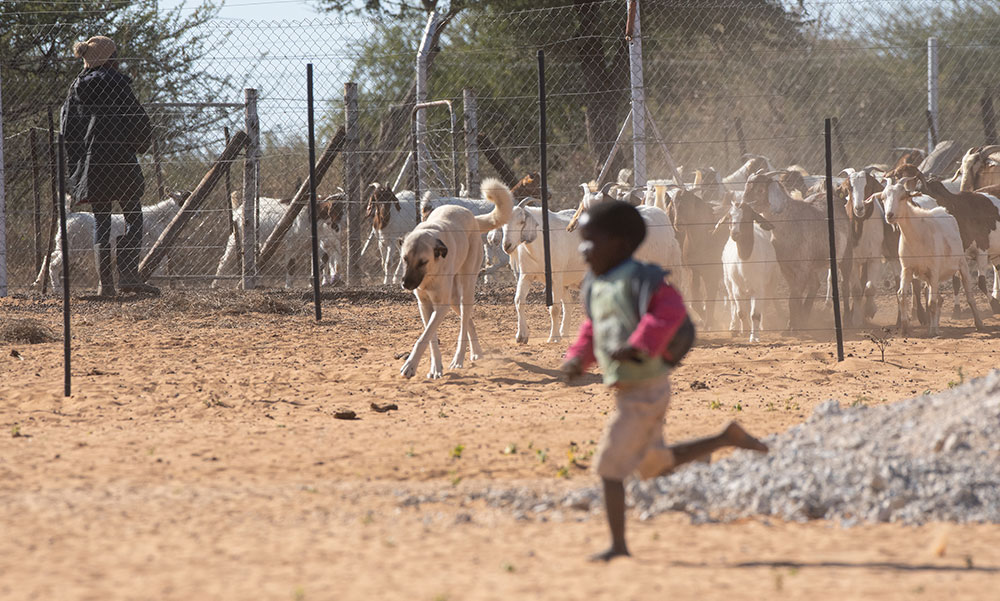
In Somaliland, the veterinary needs are a bit different than what we are accustomed to in Namibia. At the Cheetahs Safe Houses, we currently house 86 resident cheetahs and one leopard; all of these animals came to us as confiscations either due to the illegal pet trade or to human-wildlife conflict. Due to their traumatic beginnings, they have special health needs including conditions that require a lifetime of specialized medicines and therapeutics, which can become very expensive over time.
This has been a very busy year as we continue to expand our research and programs across the cheetah’s range. We have faced many challenges and overcome many limitations thanks to your generous support and we still need your help. Your support helps us provide the best veterinary care to the animals living at our Centres and it allows us to continue rehabilitating and releasing cheetahs that become injured due to human-wildlife conflict.
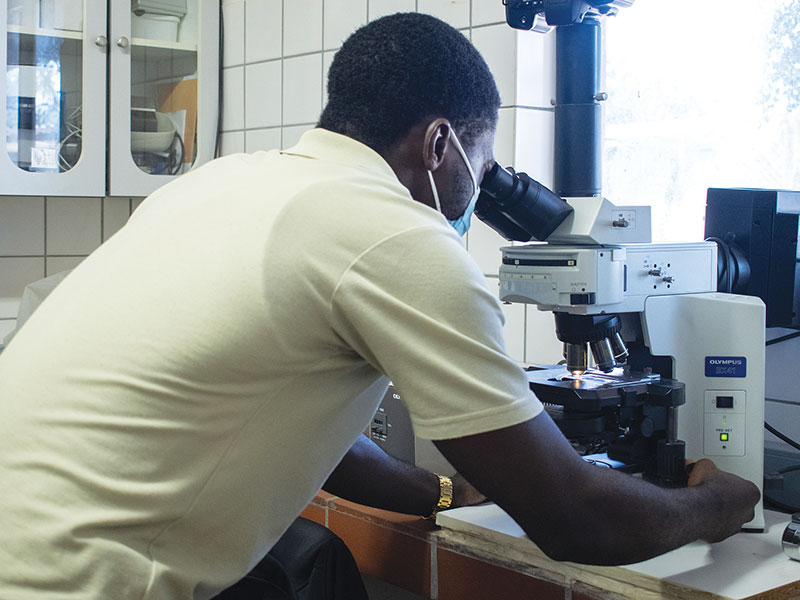
CCF's Veterinary Clinics
CCF’s veterinary clinics are where we provide care for the resident cheetahs, Livestock Guarding Dogs, and livestock living at CCF. Our veterinarians collect and analyze samples onsite to quickly diagnose health problems and we have a sterile surgical room on-hand to address emergency medical situations. The samples collected at our clinics are analyzed in our genetics laboratory and stored in our Genome Resource Bank, which is accessible to institutions from around the world.
Wildlife and livestock veterinary medicine are very rewarding fields. I am very fortunate to be able to do both. Meeting farmers, while vaccinating and caring for livestock, and hearing their stories about living alongside predators has given me a greater understanding of cheetah behavior. Learning the protocols of successful rehabilitation and release (first-hand and hands-on) from Dr. Laurie Marker has taught me about the unique medical needs of the species. Because I have benefited so much at CCF, it is a priority for me to share everything I have learned with the students conducting their internships in our veterinary clinic.
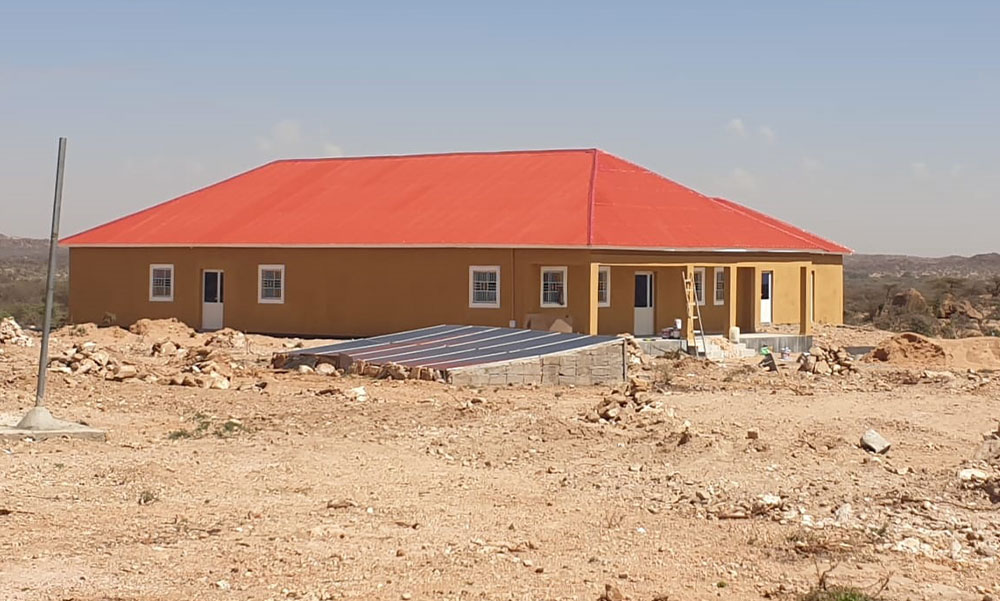
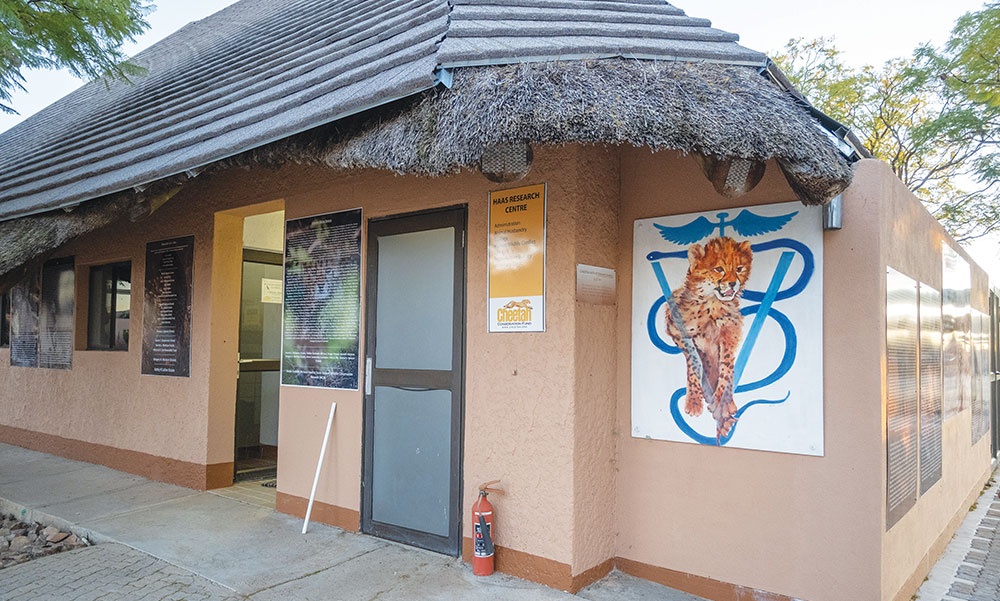
Preventive medicine is one of our main focuses and we operate a mobile veterinary clinic as part of our commitment to the One Health initiative. Rabies is endemic in Namibia and negatively impacts wildlife and the rural farming communities across the cheetah’s habitat. One Health is a natural extension of CCF’s communal outreach efforts. CCF’s education and conservation programs place a heavy emphasis on the economic stability of communities. We have found that when the needs of people are taken into consideration, the conversation about saving wildlife becomes much easier.
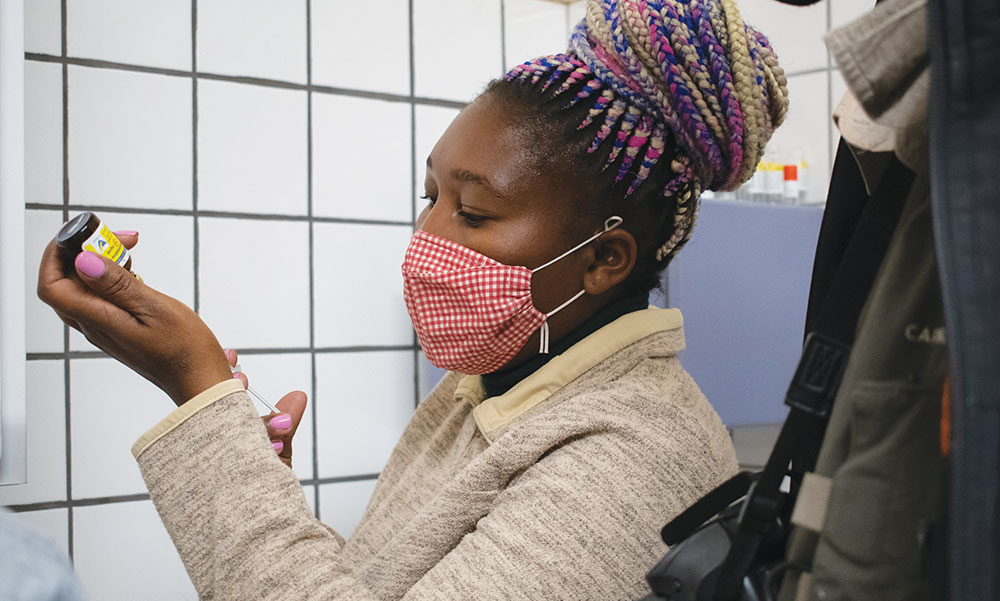
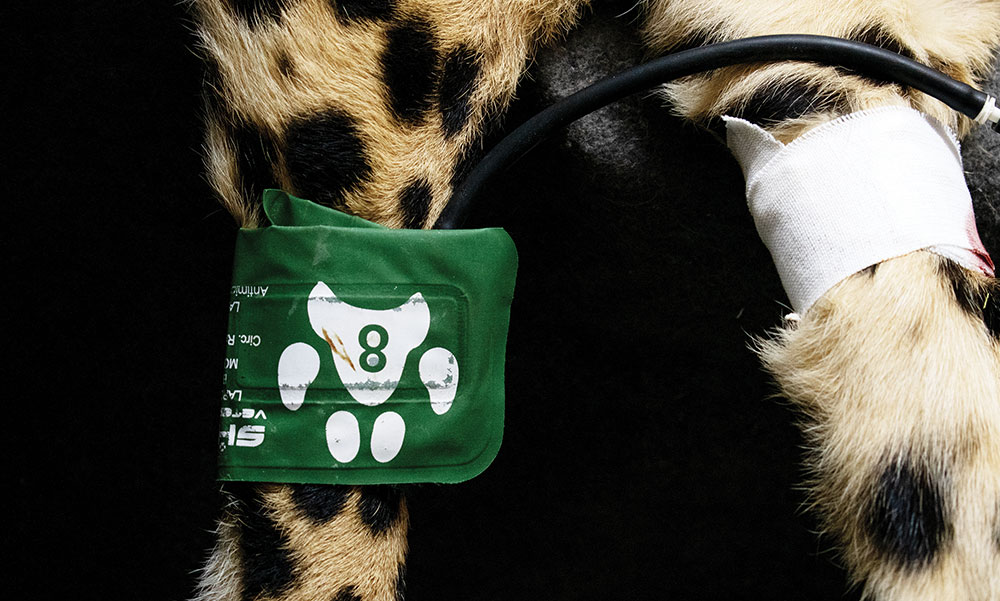
By delivering vaccinations to domestic dogs and cats we are able to provide a beneficial health service to people and also study the connection between vaccine delivery and reduction of the spread of rabies in wildlife. In 2022, we reached the milestone of 2,000 animals vaccinated in Namibia. In Somaliland, we delivered rabies vaccinations to the street dogs that live in the community surrounding our Safe Houses. Our vets also provided spay and neuter services as part of an effort to minimize breeding and reduce the unowned dog population, this also reduces the potential for rabies to spread.
Help us continue our work by making a donation today. We need your help now more than ever.
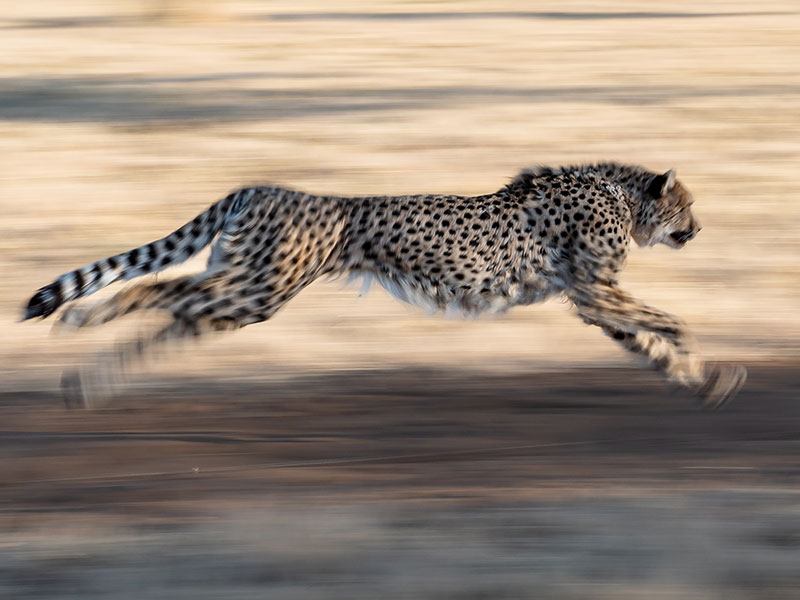
Project Cheetah - Helping Namibia Gift Cheetahs to India
On September 17th, eight adult cheetahs (three male and five female) adult cheetahs, between the ages of two to five, made the 18-hour, transcontinental journey to India’s Kuno National Park. We conducted an extensive assessment of their health, wild disposition, hunting skills, genetics and reproductive health/potential to ensure their success in India.
Related Reading
-
April 3, 2023
Clearing the Land for Cheetahs -
August 11, 2022
Memorial for Jane Katjavivi

